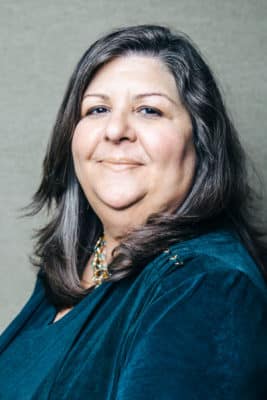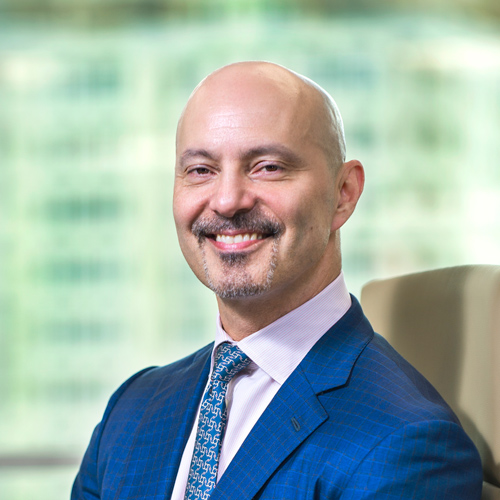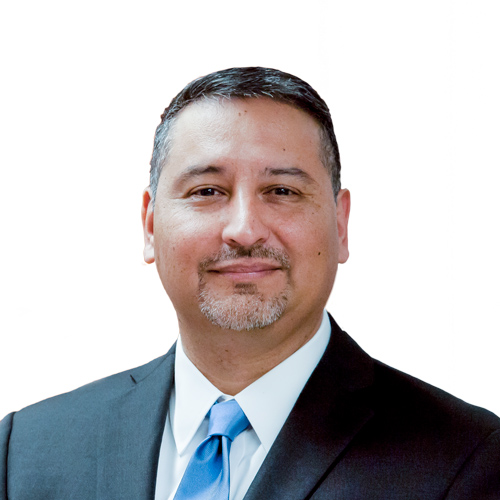|
Getting your Trinity Audio player ready...
|

Ten thousand people enroll in Medicare every day, and that trend is expected to continue as the baby boomer generation ages. As this number rises, so will the number of people who are dually eligible to receive both Medicare and Medicaid benefits. This population, which includes many people below age sixty-five, as well, is one of the most vulnerable populations in the United States. They often face unique health needs, and may have a disabling condition, suffer from a mental disorder, receive care from multiple doctors, or may be in need of in-home care providers or other health and social services. Yasmine Winkler, CEO of the central region for the Medicaid business within UnitedHealthcare, is finding new ways to help people who are dually eligible access the care they need. “Navigating the healthcare system can be challenging for anyone,” Winkler says. “How can we make it easier to navigate so people have access to the services they need?”
Winkler and her team are implementing Dual Special Needs Plans (DSNP) in nine central region states. DSNP is a Medicare Advantage plan that provides health benefits for people who are eligible for both Medicaid and Medicare. The plan combines Medicare and Medicaid benefits, coordinating care and simplifying the process for members and caregivers.
Thousands more members in the central region will soon have access to a DSNP; Winkler and her team are introducing the plans in five new markets in 2018. Entering each market is a lengthy, multistep process that requires securing approval from the Center for Medicare and Medicaid Services (CMS) on health plan benefits, securing approval from the state to sell DSNPs, and training salespeople.
Once they are available in a market, Winkler and her team organize community events to educate those who are dually eligible and their caregivers about the benefits of a DSNP and provide an opportunity to enroll. “There are many hurdles that we have to go through, and that’s because these folks are highly protected,” Winkler says. “They should be because they’re incredibly vulnerable.”
Transportation is a significant problem, especially for those in rural areas who don’t have access to cars or for those who don’t live near public transportation. “It’s great to have the benefits, but if you have no way of getting there to access those benefits, it doesn’t really do you any good,” Winkler says. “Being able to provide that transportation is a key benefit that an organization like ours offers.” In 2017, UnitedHealthcare purchased the National Medtrans Network to position access to transportation as part of their overall benefits.
Homelessness and those who are housing challenged is another social determinant that affects access to healthcare. Some people who experience homelessness visit the emergency room dozens of times a year, often because they have no place to sleep and no food to eat, in addition to experiencing health conditions that require treatment. As well as costing the system considerable amounts of money, repeated emergency room treatment also fails to address the social determinants that contribute to patients’ health issues.
Healthcare services are a key component of UnitedHeathcare and Winkler’s mission to help people live healthier lives, but it is only one part of the puzzle. “At the end of the day, it is about getting people out of poverty. It’s about changing the trajectory of their lives,” Winkler says. “We’re not just about thinking about the clinical care, but about the whole person care.”
Editor’s note: Not intended for beneficiaries.
Fostering Diversity and Inclusion
In 2017, Yasmine Winkler was nominated by the CEO of UnitedHealthcare to serve on the Diversity & Inclusion Council, a group whose role is to increase diversity at all levels of the organization. The Council is leading the organization in fostering a culture that values diversity and inclusion through initiatives to train managers, recognize and support both personal and professional commitments, promote the value of mentors regardless of gender, and provide advancement opportunities through development programs. “We are confident we will see progress, and that this will lead to better outcomes for our organization and the millions of people we serve,” Winkler says.
UnitedHealthcare wants to improve more than physical and mental well-being through their Medicaid health plans; they also want to help people out of poverty. To do this, the organization is looking at opportunities to address the social determinants that contribute to overall well-being. “Your clinical health accounts for a relatively small percentage of your overall health,” Winkler says. “The rest is made up of all of these other factors.” By addressing factors such as transportation, housing, and food insecurity, Winkler and her team aim to improve overall quality of life.

